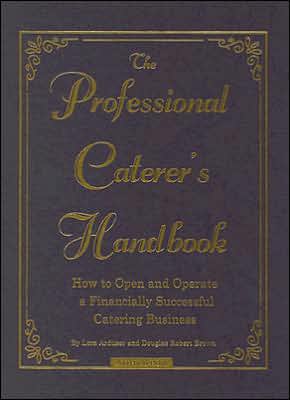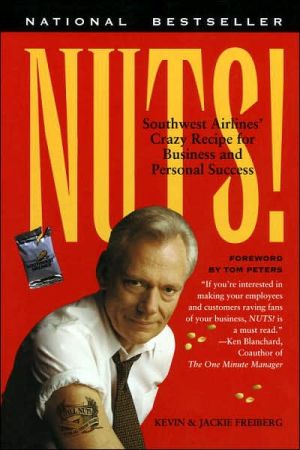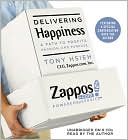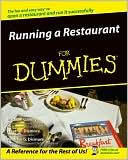The Professional Caterer's Handbook: How to Open and Operate a Financially Successful Catering Business
Do you need a comprehensive book on how to plan, start and operate a successful catering operation? This is it—an extensive, detailed manual that shows you step by step how to set up, operate and manage a financially successful catering business. No component is left out of this encyclopedic new book explaining the risky but potentially highly rewarding business of catering. Whether your catering operation is on-premise, off-premise, mobile, inside a hotel, part of a restaurant, or from your...
Search in google:
Do you need a comprehensive book on how to plan, start and operate a successful catering operation? This is it--an extensive, detailed manual that shows you step by step how to set up, operate and manage a financially successful catering business. No component is left out of this encyclopedic new book explaining the risky but potentially highly rewarding business of catering. Whether your catering operation is on-premise, off-premise, mobile, inside a hotel, part of a restaurant, or from your own home kitchen you will find this book very useful. You will learn the fundamentals: profitable menu planning, successful kitchen management, equipment layout and planning, and food safety and HACCP. The employee and management chapters deal with how to hire and keep a qualified professional staff, manage and train employees, and report tips properly in accordance with the latest IRS requirements. The financial chapters focus on basic cost-control systems, accounting and bookkeeping procedures, auditing, successful budgeting and profit planning. You ll also master public relations and publicity, learn low-cost internal marketing ideas, and discover low-and no-cost ways to satisfy customers. One section of the book is devoted to home-based catering entrepreneurs. With low startup costs and overhead, a home-based catering business can be an ideal do-it-yourself part-or full-time business. Another section is for restaurateurs that wish to add catering to their restaurant operation. A successful restaurant s bottom line could be greatly enhanced by instituting catering functions in slow hours or down time. For example, many restaurants are closed on Saturday afternoons, so this would be an ideal time to create a profit by catering a wedding This book is also ideal for professionals in the catering industries, as well as newcomers who may be looking for answers to cost containment and training issues. There are literally hundreds of innovative ways demonstrated to streamline.
The Professional Caterer's Handbook\ How to Open and Operate a Financially Successful Catering Business \ \ By Lora Arduser Douglas Robert Brown \ Atlantic Publishing Group, Inc.\ Copyright © 2006 Atlantic Publishing Group, Inc.\ All right reserved.\ ISBN: 0-910627-60-6 \ \ \ Chapter One\ Catering Basics \ Catering has come a long way from the simple chicken and prime rib buffets of the past. "Customers today are looking for the catered experience to be more restaurant-like," says National Restaurant Association Chairman Denise Marie Fugo, who is also president and CEO of Sammy's in Cleveland, Ohio. Fugo and her husband, Ralph DiOrio, started doing small private banquets and off-premise catering in 1988. Sammy's catering eventually became so successful that Fugo closed the restaurant to concentrate solely on catering.\ According to the National Restaurant Association's Industry Forecast, social caterers are one of the fastest-growing segments of the restaurant industry. There are over 53,000 caters listed in the Yellow Pages across the United States. According to the online journal catersource(r), catersource.com, the annual sales of these 53,000 caterers are between $7 and $8 billion. This figure includes off-premise and banquet facility caterers but not hotels.\ No doubt, catering offers high income potential. Many people leave the worlds of business, law and medicine, to name a few, to begin a second career in catering. While catering can be a lucrative career, it is important to keepall the aspects of the job in perspective. Catering is hard work, and often the easiest part of the job is the cooking. When you're catering an off-premise wedding for 300 people, someone has to load, unload, and load up again the crates of china, silverware and glasses-more often than not, that person is you!\ Remember, too, that catering hours are long and the work is done when everyone else in the world is socializing. You don't just work the event, you work hard for many days, weeks, and even months before the event. And when you are working an event, chances are you are forgoing your own social events. For caterers, evenings, weekends and lunchtime are bread and butter times, not down times.\ With catering, timing is everything. You need to be able to multi-task, organize your time with military precision, and be prepared for the unexpected. Caterer Bev Goldberg, recalls a time when she encountered the highly unexpected: She was getting ready for a cocktail party in a client's home and double checking her master list: linens, check; plates, check; glassware, check; soft drinks, check; garnishes, check; hors d'oeuvres, check; ice, check. Satisfied that everything needed for the party was ready and loaded into the van, she and two of her staff left for the event location. Upon arrival, she discovered no host and no guests! "The person who had contracted for the party had apparently forgotten and was not at home," she says with a laugh. A veteran caterer with more than 30 years of experience, Goldberg, who co-owns Artistry Catering in Chantilly, Virginia, with her son, Randy, has become used to the frenetic pace and unexpected occurrences of this growing profession. "I love catering," she says. "People still think this is a glamorous job, but it's just plain hard work."\ Not yet daunted? Okay, let's see if you've got the skills to back up your enthusiasm.\ Skills Needed in the Catering Business\ If you are an excellent cook, competent in artistic food presentation, possess some basic business knowledge, and love working with people, you have the basic prerequisites, but there are many skills and competencies that make for successful caterers.\ Cooking and Food Presentation\ Catered events, unlike restaurant meals, are usually centered around a special event such as a wedding, a product launch, or a special business meeting. As such, people expect more when attending a catered function. The food has to be outstanding and so does the presentation. For some venues (and especially for some clients), you will be told that presentation is the most important factor, but always remember that no matter how artistically food is presented, if it doesn't taste good, it doesn't cut it. Make sure you and your staff are experienced with both aspects of food preparation.\ Planning and Organization\ Whether you cater off-premise or on-premise for business or social functions, you absolutely must have strong planning and organization skills. If you plan smartly, the physical work at the event goes much more smoothly. If you don't, you are likely to find yourself in the middle of a hectic, unsuccessful event with unhappy clients.\ Planning is especially important with off-premise catering because you can't just run in the back and grab whatever it is you are missing. You'll need to make plans for how you will keep hot food hot and cold food cold. You need to know exactly what item gets served on which platter so you don't leave behind necessary serving dishes or servingware. You need to ensure that the silverware has been counted and recounted: you don't want to be one fork short with no extra staff to round one up.\ While 70 percent of a typical restaurant is food-oriented, with the rest going for service and organization, this figure flip-flops to 30 percent in the catering business. The rest is delivery, transporting the food, lining up rental equipment, and juggling personnel. In restaurants, every day is fairly similar. In the catering world, however, each day and each event is different; this makes organizational skills vital!\ Efficiency and Calm\ As with any food industry business, efficiency is important. You need to ask yourself if you can work well under pressure. Because each event is unique, catering can be more stressful than many professions. It's not that most professions do not demand these skills, but in catering you not only have to deal with the stress, you have to make sure your customer never sees the stress. You need to be cool and remain smiling no matter what kind of chaos is tearing at your insides. You may have just finished putting out a fire in the oven after the praline topping for the French toast spilled over the side of the pan, but as soon as you come out to greet your client, you should have your chef jacket on, a smile on your face, and a cool, calm air that reassures your client that his or her event is going to be spectacular.\ Crisis Management\ As a caterer a good deal of your time will be spent "putting out fires" literal ones like above, as well as figurative. Expect problems to happen, and be ready to solve them quickly and inventively. You need a great deal of crisis-management and problem-solving skills in catering, particularly with off-premise catering because you are dealing with so many unknown variables. You have to deal with event site problems, serving food at unfamiliar locations, and trying to find delivery entrances and parking spots. You might find, for example, that you planned to bake an egg casserole in hotel pans for a graduation brunch, but once you arrive on-site, the ovens are not wide enough for your pans to fit. The event must go on, so you need to be creative. You either need to find pans on-site or send an extra staff person (if you are so fortunate to have one) with petty cash to go buy one at a nearby kitchen store. With catering you have to learn to recognize that you are in the limelight and there are opportunities for error around every corner.\ Sales and Marketing\ While many caterers get into the industry because they like to cook, anyone who owns their own business knows that a significant portion of your time is spent on sales and marketing. Eventually you may have salespeople working for you, but when you start out in catering, you will be your salesperson. You'll be dealing with corporate executives, party planners, and nervous brides. You'll need to convince these prospective clients that you will not only provide a memorable feast, but that it will be there on time, presented attractively, and served unobtrusively! You will also need to come up with ways to retain business once you've been hired.\ With catering it is you and not your company that is being hired. You must personally impress your client or else you won't have a deal! Make your first impression your best impression. If you have almost all the above-mentioned assets and lack on this one, take some evening courses on public speaking or just rent a couple of books and guides offering techniques on better communication and presentation skills. Regardless of how great a chef you are, how well you work under pressure, and how well you problem solve, without customers there is no business, so you need to be able to sell.\ Assess Your Skills Profile\ Whether you're a seasoned food service professional or someone changing professions to follow your passion, opening any type of food service establishment can be a daunting task. There are many factors to consider and much research to do in order to decide what type of catering to do-where to locate your business, who to hire, and what kind of food to serve. The most important factor to consider, however, is you. What are your skills and experience, and how prepared are you to start your own catering company?\ To be a successful caterer you need to be able to prepare delicious food and be able to present it in an appetizing, mouth-watering way, all the while making a profit. If you are considering starting your own business and you have never worked in the restaurant industry or for a caterer before, you may want to consider looking for a position with a caterer to get a feel for the business before you take off on your own. There are lots of opportunities to pick up work during the busy seasons of late spring, early summer, and the holidays, when catering businesses crank up for graduations, weddings, and entertaining events. This is a great way to get a feel for both the back- and the front-of-the-house work. Make sure to ask lots of questions from where they rent china and tents to what type of accounting software they use.\ If you don't have restaurant experience or credentials but you want to get into catering because your friends tell you what a great cook you are or you have helped others host an event and it went really well, you really should consider some formal cooking classes. If nothing else, you will improve your technique and become more efficient. Check out local technical colleges for cooking programs. You may also find cooking classes offered through some specialty food stores and restaurants.\ Before you sink your money into the business, ask yourself some questions to see if this really is the direction you want to take. The answers to these questions will help you determine whether or not you are ready to open a catering business and whether you have the resources to do it.\ What are your goals in relation to owning a catering operation? What type of personality do you have? Are you an early riser or a night owl? Do you like interacting with people? Do you thrive on activity and crisis? Does your family support this decision and are they prepared to sacrifice time spent with you? What kind of management experience do you have? What kind of restaurant/catering experience do you have? How will you finance the operation? Can you live on your profits during those first years or do you have additional income from another source that you can live off of until the business takes off?\ Be realistic. If you are a night owl, for instance, you should not consider catering brunches or other morning events. You aren't suddenly going to wake up bright and fresh at dawn simply because you decide to. It's more likely that you'll wake up grumpy and hate going to work every day. The food service industry can be tough even if you love it; don't make your work harder by mismatching your concept and your personality.\ Assess Your Finances\ Before you start buying pots and pans and searching for a location, take a good, hard look at your finances and determine if you really can afford to start a business. This is particularly important if you are a sole proprietor because your personal finances will come into play when you start looking for business financing.\ How much of your own money can you afford to tie up in starting your catering business? If you are looking for financing you will probably have to demonstrate that you can finance a portion of it yourself. Do you have personal equity to invest in your company, and can you afford the monthly loan payments you'll need to make?\ Make sure to check your personal credit before going out to find financing. To check on your personal credit record, call one of the three major credit unions:\ Equifax 1-800-685-1111\ Experian 1-888-397-3742\ TransUnion 1-800-888-4213\ The Fair and Accurate Credit Transactions Act allows you to get one report from each of these three credit unions for free once per year.\ Many people dream of starting their own business, but you have to be realistic and take a good, long look at whether you have, or can get access to, the financing needed to create and sustain a business.\ While your current finances are very important, just as important are the potential profits your catering company can earn. You don't want to invest your money, or expect others to finance or invest, in a business that doesn't have a high likelihood of profitability.\ Catering and Profits\ Whether you plan to cater small intimate affairs every day, or huge extravaganzas for thousands a people once a year, the profit margin potential in the catering business is extremely high. Some caterers manage to walk away with 66 percent pre-tax profits. This figure may seem hard to believe, but when you stop and think about all the ways that caterers can keep their overhead costs at practically nothing, it becomes a more credible figure. About 70 percent of caterers report that they have been profitable each and every year of their last five years in business.\ If you are working out of your own kitchen, you can start out with an investment as low as $1,000, but outlay can be as high as $100,000 if you want to outfit a professional kitchen. Despite the scale of operation, your pretax profit remains high and revenues of between $200,000 and $2,000,000 often yield pre-tax profits of between $50,000 and $1,000,000.\ There is no doubt that successful caterers can be very profitable, but there are many different ways to earn those profits within the catering industry. It is important to choose the type or types of catering that fit best with your skills and expectations.\ Types of Catering\ The sky is the limit with catering. You'll find caterers in the catering departments of restaurants or large hotels, and then there are the private caterers who do traditional off-premise catering, offer gourmet to-go dinners, or have a personal chef business.\ Many people who start out in catering want to immediately own their own business, so many will start out doing off-premise catering out of home kitchens. Others are interested in joining a large hospitality company and will look for work in a major hotel or at a large restaurant. These types of organizations generally provide on-premise catering. Catering is also segmented by what type of event is being hosted. Caterers work for both business and social events. It is not necessary to specialize in any event type because they are usually scheduled differently. Social events are likely to occur at night and on weekends, while business events happen more often during regular business hours.\ If you are a business owner, the types of events you take on are dictated by your own interest or your own schedule. Many people who start catering businesses do so while they are still employed, so they limit their catering work to nights and weekends. Of course, "limited" isn't really the right word here because there is no shortage of events occurring in these hours!\ For you to get a good understanding of what is involved with the different types of catering, let's take a closer look at each one.\ (Continues...)\ \ \ \ \ Excerpted from The Professional Caterer's Handbook by Lora Arduser Douglas Robert Brown Copyright © 2006 by Atlantic Publishing Group, Inc. . Excerpted by permission.\ All rights reserved. No part of this excerpt may be reproduced or reprinted without permission in writing from the publisher.\ Excerpts are provided by Dial-A-Book Inc. solely for the personal use of visitors to this web site. \ \








